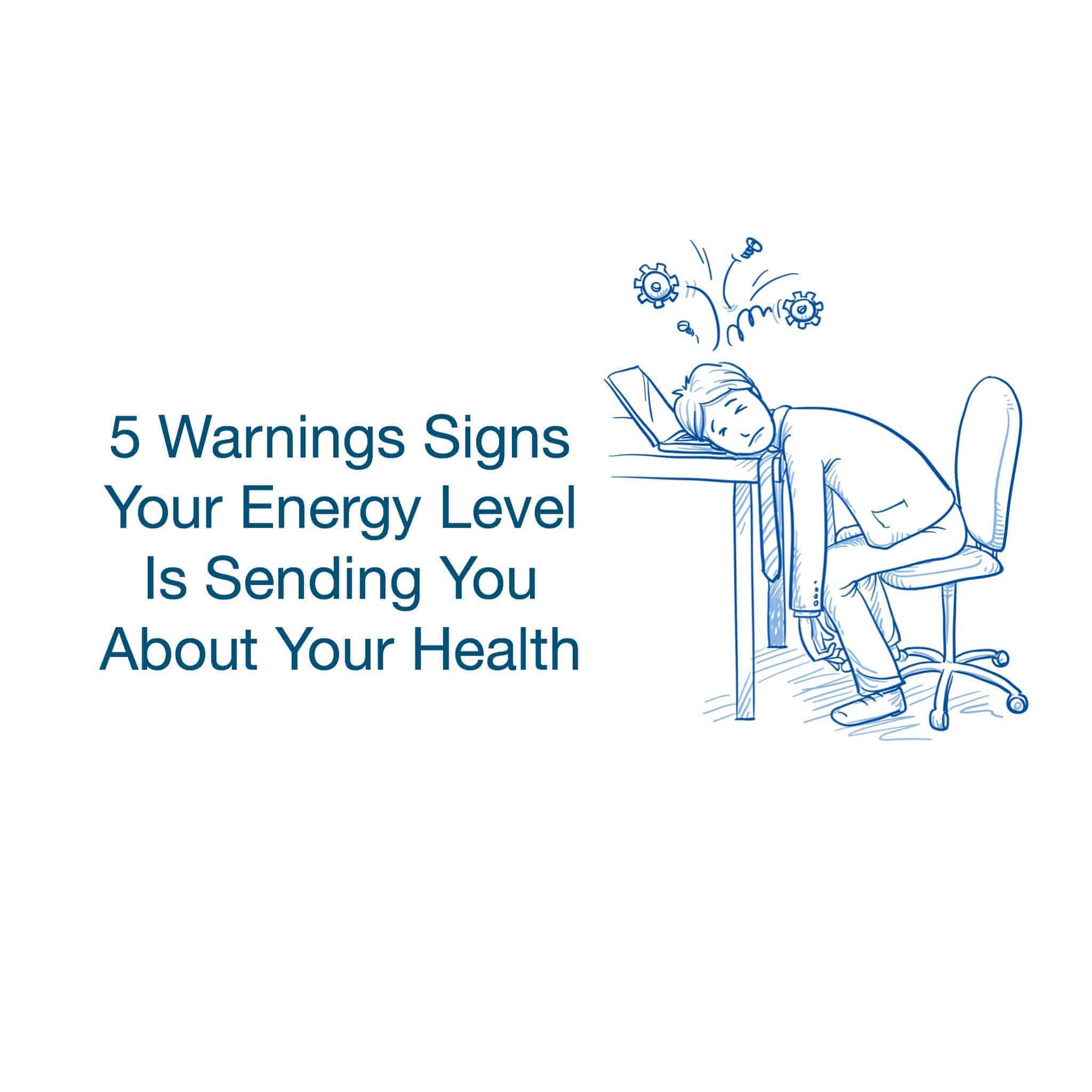Ideally, we’d all like to have endless amounts of energy all the time in our daily lives. However, many times, our image of how we would like to feel comes crashing down just after our lunch breaks at work. While being tired occasionally shouldn’t raise any red flags, consistently feeling exhausted after sleeping for 7-8 hours a night might signal something more serious. Low energy levels can make us feel lethargic, uninterested in our environment, and downright crabby if we don’t have the stamina to make it through our day without a nap, caffeine, or some sort of stimulant to stay awake.
If you continually have low energy levels, read on to find out what it might mean regarding your health.
Here are warning signs your energy level is sending you about your health:
1. You could have an under or overactive thyroid gland.
Your thyroid gland is a butterfly-shaped gland in the front of your neck that secretes hormones determining how your body will use energy. If you have an overactive thyroid (hyperthyroidism), your body will produce too many vital hormones. The opposite will occur if you have an underactive thyroid (hypothyroidism).
According to WebMD, both of these conditions can cause serious problems if not treated, so schedule a doctor’s visit if you believe you might have a thyroid disorder. Both an under and overactive thyroid can disrupt sleep, making you feel groggy the next day and contributing to low energy levels.
2. You might be overly stressed.
Stress can easily make you feel exhausted. Your mind races, your heart pounds, you have all this adrenaline that you can’t seem to get rid of. Stress requires copious amounts of energy, so it drains you after just a short period. Every emotion we feel is energy, but negative ones deplete our energy stores, while positive ones add to them. If you feel stressed the majority of the time, try deep breathing exercises, moving your body, meditating, and eating well. Usually, we can heal our stress naturally by making a few small changes in our daily routines.
3. You might have a sleep disorder.
If you feel exhausted after getting a full night’s rest, this could point to a sleep disorder. According to Stanford Medicine, there are over 100 different sleep disorders, ranging from trouble falling asleep at night to difficulty staying awake during the day. The most common sleep disorder is insomnia, with 1 in 10 U.S. adults suffering from it each year.
If you believe you have a sleep disorder, talk with your doctor to discuss possible remedies.
4. You could suffer from anxiety or depression.
Just like stress, anxiety and depression can zap your energy levels, making you feel lifeless and exhausted. While anxiety makes you feel intense amounts of energy, it doesn’t serve a purpose unless you find yourself in a survival situation. Our bodies naturally produce a “fight or flight” response when in danger, but feeling this way most of the time can wreak havoc on the immune system and cause low energy levels after the cortisol and adrenaline have died down. On the other hand, depression makes you unable to feel much of anything at all, decreasing energy levels.
If you’d like to read about natural remedies for anxiety and depression so that you can keep your energy levels high, please consult our article here.
5. Low energy levels can indicate a nutrient deficiency.
Feeling low energy levels regularly might mean you have a nutrient deficiency. Our bodies require many different vitamins and minerals to function optimally. Thus, deficiencies mean you won’t have the necessary energy to live your life to the fullest. Generally, eating whole foods, plant-based diet will give you the vitamins and minerals you need to thrive. But if you’d like, you can also take supplements to ensure you get the proper nutrients. If you are vegetarian or vegan, especially, make sure you get your B12 from some source, either from a supplement, a shot, or fortified foods.
Low energy levels can take away from living a happy, healthy life, so if you feel low on energy, try going to the source first. Examine your diet, exercise regimen, self-care routine, and other habits to see if you can adjust your lifestyle to provide you with more energy. Your body, mind, and soul deserve only the best, so give them what they need to thrive!

















